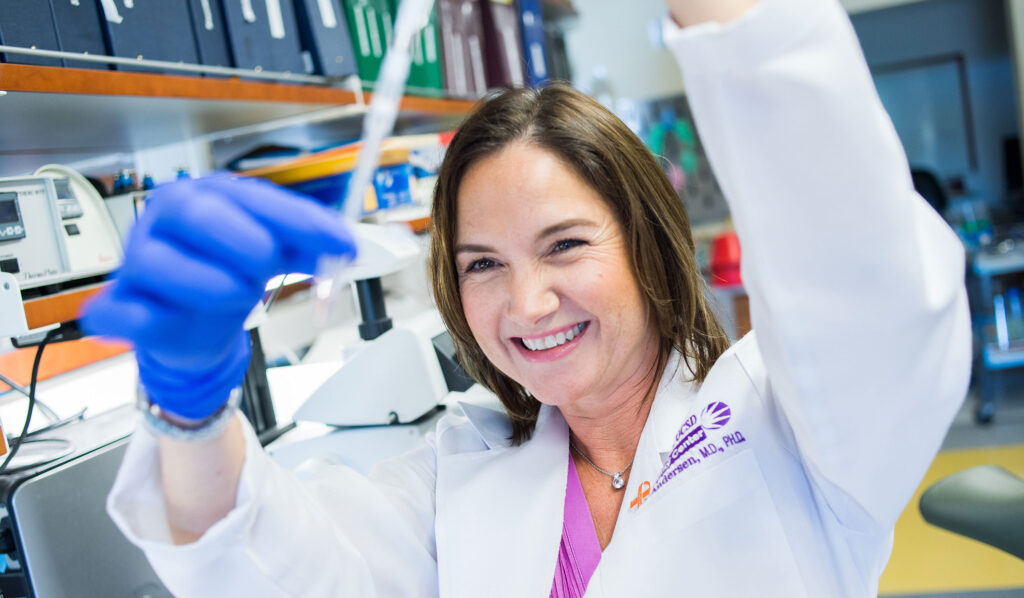
Reproductive Partners – San Diego fertility expert Heidi Cook-Andersen, M.D., Ph.D. was recently bestowed the nationally prestigious Career Award for Medical Scientists from the Burroughs Wellcome Fund to study egg quality. The Burroughs Wellcome Fund is a private foundation whose goal is to encourage scientists early in their careers to develop as independent investigators and advance undervalued fields in basic biomedical sciences. Through this significant grant, Dr. Cook-Andersen will study the factors that influence egg quality, an important component of successful fertilization that experts in the field have yet to fully understand. This success marks Dr. Cook-Andersen as the first physician-scientist at UCSD to receive the award in the past 7 years and the first-ever OB/Gyn-trained physician-scientist to receive the grant in the history of the award.
More than 10% of women of reproductive age in the United States face infertility, often due to “poor egg quality.” Dr. Cook-Andersen has designed a set of experiments intended to uncover a greater understanding of the factors that influence the transition from egg (oocyte) to embryo.
“We know that successful embryo growth begins during oocyte growth,” explains Dr. Cook-Andersen. “This growing oocyte needs to accumulate all the necessary tools for its later transition to an embryo, including an accumulation of messenger RNA (mRNA) that creates needed proteins, then shuts off once the oocyte has finished growing. My research focuses on the pathways regulating the activation and repression of stored oocyte mRNA needed during the earliest stages of development in mammals. Understanding this process will shed much-needed light on the root causes of infertility.”
Scientists have recently discovered that a factor influencing mRNA degradation is ZFP36L2, a gene that must be expressed within the oocyte during its growth in order for the oocyte to undergo proper maturation and be receptive to fertilization. ZFP36L2 mediates the “shutting off” of mRNA transcription that happens during the final stages of the oocyte’s growth, an important event necessary for continued development of the oocyte and embryo. However, the mechanisms facilitating this event are still largely under investigation.
Dr. Cook-Andersen and her team hypothesize that ZFP36L2 brings about global transcription silencing in oocytes through the degradation of mRNAs which encode master regulators of transcription. The grant will enable her team to adapt and develop cutting-edge genome-wide approaches to analyze RNA metabolism during the transition from the oocyte to embryo and to identify factors with important functions in determining high quality oocytes and embryos.
Dr. Cook-Andersen is particularly qualified in this area of research, due to her core training in RNA biology and ongoing clinical work at Reproductive Partners – San Diego, where she incorporates her expertise into tailored treatment plans for patients struggling with the challenges of infertility.
“I am delighted to receive this award and eager to get started,” concludes Dr. Cook-Andersen. “These in-depth studies will greatly expand our understanding what it takes to make a high quality egg and embryo and to uncover the currently unrecognized causes of infertility. Our goal for these studies is to advance diagnosis and treatment options for all those seeking infertility treatment.”
Our skilled fertility specialists are here to help. Contact us today and let’s discuss the next phase of your fertility journey.